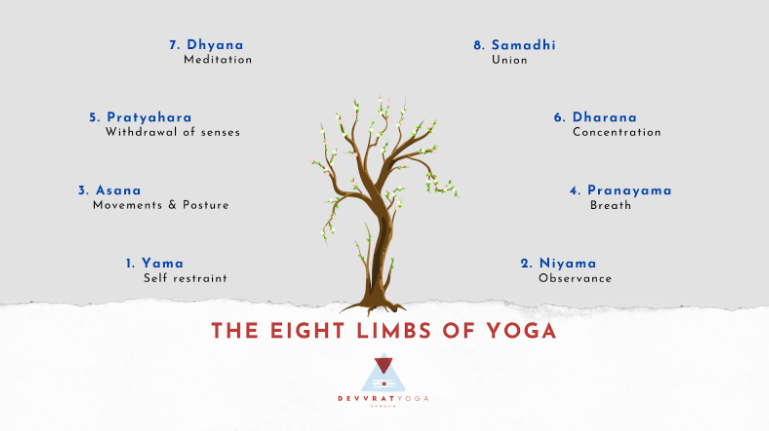Yoga Philosophy
What is the main philosophy of Yoga?
The philosophy of yoga clearly states that mind, body, and spirit are one and inseparable. It is similar to the philosophy of Buddhism, as it states that the cause of all suffering is spiritual ignorance. All that binds us to the cycle of rebirth or the wheel of Samsara is this ignorance. The philosophical teachings of yoga revolve around the attainment of self-realization, mental detachment, and self-awareness through the removal of this ignorance.
Yoga means ‘Union’ of the six systems of Indian philosophies. The basic text that details these philosophies is the Yoga Sutra by the great sage Patanjali.
According to Patanjali, yoga is defined as ‘Chitta vritti nirodha,’ a state of mind free from the states of worry, trouble, anger, or fear. The mind is still. A mind that makes you focus on the present.
The three Gunas in yoga philosophy.
The three Gunas or qualities described in yoga philosophy are:
1. Sattva or harmony and kindness.
2. Rajas or passion and activity.
3. Tamas or destruction and chaos.
It states that all three qualities are present in a person, but in varying degrees. It also states that Sattva is Purusha, and Tamas is Prakriti, in accordance with the Sankhya theory.

What are the different paths of yoga?
A yogi should have knowledge of the relationship between Atman and Brahman, Prakriti and Purusha, and the Holy Trinity of Brahma, Vishnu, and Shiva.
One gets this knowledge from following different paths of yoga philosophy.
There are six paths of yoga generally recognized:
The ancient texts of the Yoga Sutras have defined five stages for getting a disciplined mind.
- At first, your mind is agitated.
- Then you become dull or lethargic.
- Now your mind suffers distractions.
- Then it becomes focused.
- This is the final stage where you experience a deep, tranquil mindset.
In Bhagavad Gita, Lord Krishna advised Arjuna to perform his duties for the sake of work, and not for any praise or reward. One should have no attachment to the fruits of one’s labor.
When you serve others selflessly, you become one with the divine and with those you serve. This philosophy believes that what goes around, comes around. When you serve others, you rise above greed, lust, and anger.
Shiva is known as the Lord of Hatha yoga, he is the Adiyogi or Adiguru. He taught the scriptures to Mother Parvati first and then to the Sapt Rishis, who spread the knowledge of yoga throughout the world.
Why do we need a Yoga philosophy?
Thus yoga can be said to be a science and an exploration of the self, that brings about a metamorphosis in the practitioner and aids in self-realization. Yoga, in its true essence, elevates the Kundalini or the life force situated at the base of the spine. Through this, a person can seek out the purpose of one’s birth.
A quote from the Bhagavad Gita;
“A person is said to have achieved Yoga, a union with the Self when the perfectly disciplined mind gets freedom from all desires and becomes absorbed in the Self alone.”
what we offer
Explore Our Top Yoga Programs in Kerala

200H Yoga Teacher Training in Kerala
View Program

300H Yoga Teacher Training in Kerala
View Program

Yoga & Ayurveda Retreats
Shorter immersive retreats in Kerala combining yoga, Ayurveda, and meditation. Reconnect with yourself while experiencing India’s holistic traditions.
View Program
